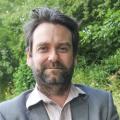
CALLS to commemorate a World War Two fighter pilot from Bolton have been renewed following the recent marking of the 80th anniversary of the Battle of Britain.
John Colin Mungo-Park is today regarded as one of the finest airmen to take part in the conflict.
He was awarded the Distinguished Flying Cross in 1940, and a Bar to the medal in 1941 and is credited with destroying 11 enemy aircraft.
Tragically, he was shot down and killed aged just 23-years-old on June 27 1941 when his plane crashed just north of Dunkirk, a couple of miles over the Belgian border.
Now Stuart Whittle, chair of Horwich Heritage has called on Bolton Council to create a permanent memorial to the flying ace who moved to the town with his family as a teenager in 1934.
"As we celebrate the 80th Anniversary of the ‘Battle of Britain’, we are reminded once again of the heroics of our RAF pilots,” said Mr Whittle.
“Many of these pilots are now household names and amongst them is Squadron Leader John Colin Mungo-Park DFC & Bar who was brought up in Bolton.
“A couple of years ago I wrote a piece for the Bolton News about him and suggested that the town consider some kind of memorial.
“So far, and 79 years since his death, nothing has materialised, so isn’t it time we did something?”
Before the war, John had taken up a position in the offices at Holden’s Mill in Astley Bridge intent on studying textile manufacture.
He pursued a number of sporting interests, being a member of Bolton Rugby Club and Sharples Tennis Club, but an interest in flying led to him to join the RAF on a short service commission in 1937.
John was thrown into action when he joined No. 74 Squadron RAF flying Spitfires from RAF Hornchurch.
When he was awarded the Distinguished Flying Cross (DFC) on November 15 1940, the citation read: “He has personally destroyed eight hostile aircraft and has at all times displayed great courage and coolness in action.”
Mungo Park Way in Orpington, Mungo Park Road in South Hornchurch and Mungo Park Close in Bushey are all named after John and Mr Whittle believes Bolton should pay a similar tribute.
“John was ‘one of the few’ to whom this country owes a great deal,” he added. “He was a national hero, greatly admired, unassuming and very brave man.
"There are streets in London Boroughs named after him, but there is nothing to commemorate his exploits in Bolton and I doubt that many of our residents will have heard of him.
“Surely we can find a way of honouring a man who was a true local hero.”



Comments: Our rules
We want our comments to be a lively and valuable part of our community - a place where readers can debate and engage with the most important local issues. The ability to comment on our stories is a privilege, not a right, however, and that privilege may be withdrawn if it is abused or misused.
Please report any comments that break our rules.
Read the rules hereLast Updated:
Report this comment Cancel